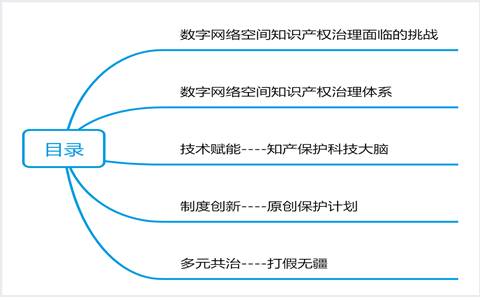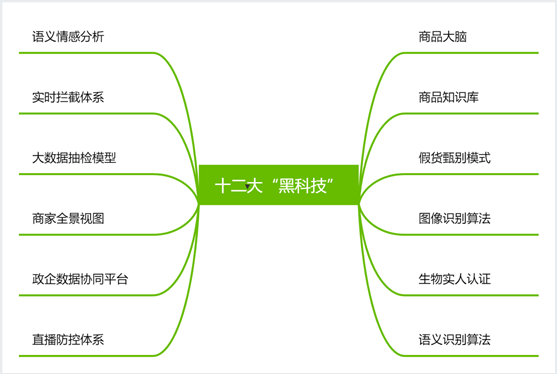On 15 December 2021, from 11:30-13:30, the 6th Xi Xian "Innovation Cloud Forum", co-organised by the Ministry of Education, the IIDPF under the Ministry of Science and Technology and the Centre for Science and Technology Strategy and Policy Research, was held online as scheduled. Professor Huang Can from Zhejiang University gave a lecture entitled "Intellectual Property Governance in Digital Cyberspace" as the keynote speaker of the Xixian "Innovation Cloud Forum". More than 100 students and faculty from Xiamen University, Wuhan University, Huazhong University of Science and Technology, Shandong University, Fuzhou University and Zhongnan University of Economics and Law attended the forum online.
  Professor Huang Can's research focuses on the following three perspectives:
  First, the challenges of IP governance in digital cyberspace were discussed; second, the IP governance system in digital cyberspace was discussed, mainly including three parts: government governance system, market governance system and social governance system; finally, three approaches to build the IP governance system in digital cyberspace were proposed, namely, technology empowerment, institutional innovation and pluralistic governance.

  Professor Huang identified the differences between IPR infringement in digital cyberspace and traditional physical space. First, in terms of time, information in digital cyberspace spreads quickly and innovations are easily imitated and copied; second, in terms of space, the marketing of products in digital cyberspace is not restricted by physical space and infringement can cause great damage in a short period of time; in terms of complexity, IPR infringement in digital cyberspace is highly concealed, infringers can easily hide and remove evidence, infringers are not easily identified and IPR enforcement in digital cyberspace is technologically demanding and difficult. Third, in terms of complexity, IPR infringement in digital cyberspace is highly concealed, infringers can easily hide and remove evidence, the identity of infringers is not easy to identify and the enforcement of IPR in digital cyberspace is technically demanding and difficult.
  Professor Huang took the challenges facing the governance of intellectual property rights on Alibaba's platform as an example, i.e. the stock of goods on Alibaba's platform is 2 billion, 30 million+ new goods are issued daily, 10 million+ complaints are received from rights holders and 1 million+ reports from users every year, while about 30 million cases will be heard by China's courts in 2021, 50% of which are civil cases, assuming that China's judges gather offline Based on these data, it is impossible to rely on the traditional governance system to govern the disputes that exist in reality and rely on offline courts to solve these problems, and the efficiency is extremely low; however, the problems that exist cannot be ignored, therefore, in the digital cyberspace, a new system is needed to govern In the digital cyberspace, a new system is needed to address the challenges of IP legislation, administration of justice, enforcement and enforcement of rights.
  Following this, Prof. Huang pointed out three systems of IPR governance in digital cyberspace; first, the government governance system: the government in a broad sense is the main body, based on legislation, justice and administrative law enforcement, and the management knowledge system is constructed in three dimensions: right determination, right protection and right realization; second, the market governance system: under the regulation of laws and regulations, the platform is the main body, relying on information technology and contractual Second, the market governance system: under the regulation of laws and regulations, with the platform as the main body, relying on information technology and contractual relationships to handle all kinds of IPR disputes and infringement disputes occurring on the platform, and to establish an IPR governance system for the determination, maintenance and use of rights; third, the social governance system, under the regulation of laws and regulations, the government, right owners, the platform and the public to participate and collaborate, forming a common governance and interactive governance of IPR governance system.
  In conclusion, Professor Huang proposed three approaches to intellectual property governance in digital cyberspace.
  Technology-enabled approach. Taking Alibaba as an example, Prof. Huang first explained the four scenarios of the "Intellectual Property Protection Technology Brain" technology, i.e. from "shop opening verification - product identification - marketing monitoring - external feedback". The 12 "black technologies" supports the operation of the online active prevention and control system (as shown in the figure); then reported the effect of Alibaba's online active prevention and control system: namely, in 2020, 96% of suspected infringement links were blocked as soon as they went online; the volume of suspected infringement links reported by consumers was 33% lower than the previous year; 98% of IPR The number of rights holders on board will increase by 40% compared to last year; only 1.08 out of every 10,000 transactions will be suspected counterfeit goods. At the level of "AI technology" application, Alibaba generates AI virtual models based on the target face module through algorithmic technology to help merchants reduce the problem of non-malicious infringement, and also help merchants reduce the human and financial costs of new product launches. (AI virtual model).

  Second, the system innovation approach. Professor Huang took Alibaba's "Original Protection Plan" as the starting point and introduced the example of "originality is dead" - Shen Wenjiao's interrogation of originality protection on the platform. He also proposed that the Original Protection Plan provides a one-stop solution for the whole chain of filing-authorisation-right protection: authoritative certification, one-stop filing, convenient operation and model innovation.
  Third, the pluralistic approach to co-regulation. Referring to Alibaba's "Fight Counterfeiting without Frontiers" platform, Professor Huang pointed out that in order to achieve multi-faceted co-regulation, it is necessary to emphasize the participation of multiple parties, i.e. the subjects of co-regulation should involve various government departments such as commerce and national market supervision, as well as rights holders such as the public, enterprises and brand owners. On the other hand, it is important to collect a large amount of information, and only by establishing a direct and effective communication mechanism between law enforcement agencies and rights holders can a long-term coordination mechanism be established.
  The traditional IPR system cannot completely solve the IPR issues in the online digital cyberspace. Therefore, uniting the government governance system, market governance system and social governance system, and combining technology empowerment, institutional innovation and pluralistic governance is the direction for the future development of IPR issues in the digital cyberspace.
  The lecture was successfully concluded with active discussions between students and faculty at the top of the line on research outlets for the management of traditional technological innovations, payment mechanisms for intellectual property rights and the review of manuscripts for the journal Management and Organization Review.
